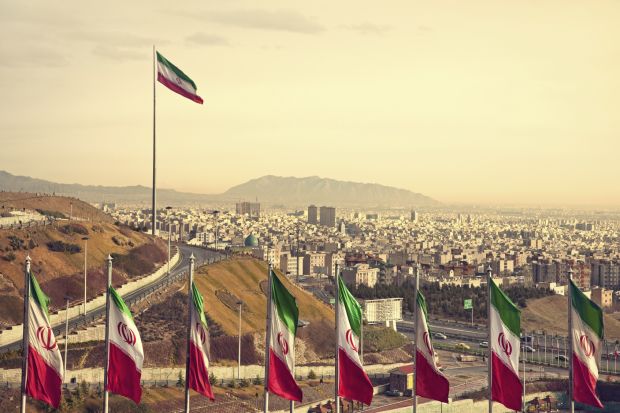Two years after Princeton University postgraduate student Xiyue Wang was released from three years of jail in Iran on dubious espionage charges, he is suing the Ivy League institution for alleged failure to help him.
Mr Wang – freed in a December 2019 prisoner swap between the US and Iran after long protests on his behalf – argues in his lawsuit that Princeton made a “foolish and reckless decision to direct” him to study in Iran.
The university then engaged in “a series of subsequent actions, inactions and reckless decision-making” that compounded his imprisonment, Mr Wang said in the complaint filed in a state court in New Jersey.
Cases of US students detained abroad are rare, and institutions typically work to help them out, though the problem ultimately is seen as a matter for negotiations at a government-to-government level to resolve. At the same time, universities have been accused by some experts of not being properly prepared for the risks.
Mr Wang was arrested in Iran in August 2016, accused of spying – without being given any evidence of it – while he was conducting research for his dissertation on Eurasia of the late 19th and early 20th centuries. His 2019 release was arranged as a swap for Massoud Soleimani, an Iranian scientist arrested in the US in October 2018 for allegedly violating trade sanctions by sending biological material to Iran.
Now working as a national security adviser for a Republican member of the US Congress, Mr Wang was joined in the lawsuit by his wife, Hua Qu, a fellow Princeton graduate student left behind in the US during his imprisonment, who took care of their young son and led protest activities on his behalf.
The couple argue as joint plaintiffs that they and their son all suffered severe emotional trauma from the experience, as well as “significant financial losses”. Their complaint against Princeton does not make specific financial demands in terms of compensation.
Princeton, in a statement, said it was “surprised and disappointed by this complaint and believe it is without merit”.
“Xiyue Wang, Hua Qu, and their son are valued members of the Princeton University community, and the university’s singular focus has always been the safety and well-being of Mr Wang,” said a university spokesman.
Outside experts said they had sympathy and understanding for Mr Wang and his family and their trauma, but suggested that their criticisms of Princeton may be misplaced.
The behaviour of authoritarian countries is by design difficult to predict, said Robert Quinn, founding executive director of the Scholars at Risk Network, which helps protect academics threatened abroad by finding them alternative research and teaching placements.
Mr Quinn, whose independent organisation is based at New York University, said he could not comment on the specific case of Mr Wang. Speaking generally, he said: “I don’t think any student or university should be overly harsh with themselves for not being able to know where the clear line of safety is.”
But Mr Quinn said that, “in situations where an individual scholar or student is in a vulnerable position”, a university should “do everything it can, including mobilising its relationships and reputation, to help, and in doing so, stand up for academic freedom”.
Barmak Nassirian, a veteran US higher education expert with family roots in Iran, shared that general outlook. “The risks of visiting Iran are well known to ordinary Americans, and would presumably be quite obvious to a scholar of the region,” said Mr Nassirian, vice-president for higher education policy at Veterans Education Success.
In his lawsuit, Mr Wang acknowledged that his postgraduate work did involve studying Eurasian history. But he told the court that he “had no academic background in Iranian history and politics” and accused the university of pressuring him to travel to Iran despite known security risks.
And then, after he fell under scrutiny of Iranian authorities, Mr Wang said in his court filing, Princeton “was shockingly ambivalent toward the very real threat” and “had no plan whatsoever for protecting” him, and “sought to fully control all efforts to secure Mr Wang’s release by keeping his story out of the press”.
Both Princeton and Mr Wang’s attorney declined further comment on the matter.
Register to continue
Why register?
- Registration is free and only takes a moment
- Once registered, you can read 3 articles a month
- Sign up for our newsletter
Subscribe
Or subscribe for unlimited access to:
- Unlimited access to news, views, insights & reviews
- Digital editions
- Digital access to THE’s university and college rankings analysis
Already registered or a current subscriber? Login








